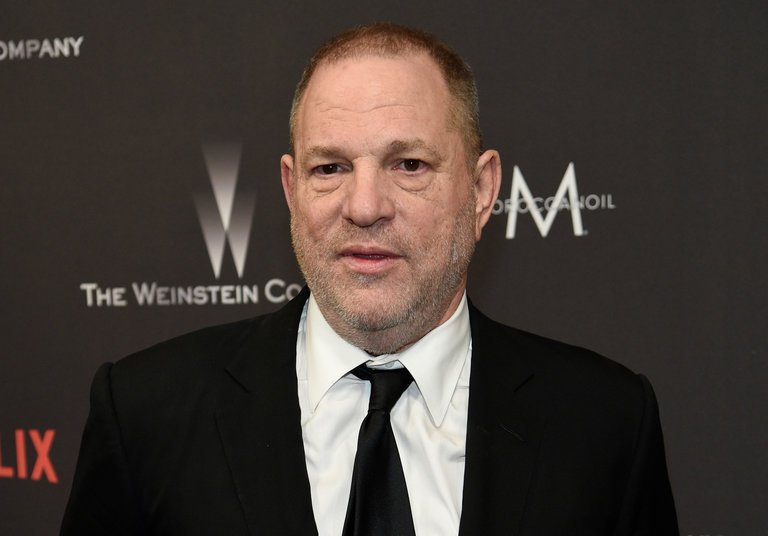Harvey Weinstein was a former American film producer and co-chairman of the Weinstein Company, of which he is the co-founder. The Academy Award-winning Weinstein enjoyed a long, successful career producing some of American cinema’s most famous films, such as “Pulp Fiction” and “Shakespeare in Love,” until October 2017, when he was accused of several decades’ worth of sexual harassment, assault and rape.
The Weinstein scandal, which has made international headlines in the past few weeks, is shocking to many, but also reveals the tradition of sexual misconduct against women that is perpetrated by famous men. The scandal has also brought to national attention the ongoing issue of sexual harassment, which has finally made it to the public eye.
Since news of the allegations against Weinstein broke, at least 64 celebrities have either accused him of sexual misconduct or condemned his actions, among whom include Angelina Jolie, Kate Beckinsale and Quentin Tarantino. The list continues. However, the condemnation of Weinstein is not simply an act of condemnation or solidarity with the women who have come forward with accusations. Rather, the act is also a clever strategy for some celebrities to insert themselves into the spotlight and leverage Weinstein’s losses for their own gains.
Because countless celebrities have spoken out against him, news of the allegations against Weinstein, along with celebrity statements, remain fresh in our minds and our news feeds, and is likely to remain a topic within the national conversation. The most important aspects of the Weinstein case are not only the severity of his actions (and consequences), but also the rampant publicity.
However, what the media fails to point out about the Weinstein case is that it is not an isolated phenomenon. Instead, it is just another case that continues the pattern of prominent men facing sexual misconduct allegations, which fails to change the wider public view of sexual harassment.
[su_youtube url=”https://www.youtube.com/watch?v=imMAPOyp0PI”]
Anita Hill is an American attorney and professor at Brandeis University’s Department of Social Policy, Law and Women’s Studies. Hill is also the woman who, in 1991, testified before the all-male Senate Judiciary Committee regarding sexual harassment by then-nominee to the Supreme Court Clarence Thomas. Anita Hill’s decision to speak out against her former boss at the Equal Employment Opportunity Commission was groundbreaking, as it successfully ignited a national conversation regarding sexual harassment faced by women in the workplace. Hill’s claims led people to begin to realize the frequency in which sexual harassment occurs in everyday life.
Today Clarence Thomas has been on the Supreme Court for well over twenty years, and Anita Hill has largely retreated out of the public eye. However, Hill’s actions established a precedent for women to share their own experiences and to speak out against sexual harassment. Twenty-six years after Hill testified against Clarence Thomas, Harvey Weinstein’s case made international news, quickly becoming well-known for the number of accusations. Twenty-six years later, there is still work to be done.
Perhaps even more shocking, Hill recalls people coming up to her to tell they didn’t even know what constituted sexual harassment, let alone that it is against the law and has been for decades. According to the Equal Employment Opportunity Commission (EEOC), Hill’s former employer, “sexual harassment is a form of sex discrimination that violates Title VII of the Civil Rights Act of 1964.”
[su_youtube url=”https://www.youtube.com/watch?v=H2GStfG1hPc”]
Furthermore, the origin of the term “sexual harassment” is largely unknown in our culture. Because of cases such as those of Clarence Thomas and Harvey Weinstein, people have become more aware of sexual harassment and its implications in society. However, the beginnings of the awareness movement are largely unknown.
The term “sexual harassment” was coined in 1975, by a group of women at Cornell University who formed a group called Working Women United. Soon after the term was created, it quickly made national headlines. In August 1975, The New York Times used the phrase in an article, which quickly became widely circulated and paved the way for other major media outlets to begin to report on sexual harassment.
The definition of sexual harassment can be narrowed by definition of two types of sexual harassment. Feminist attorney Catharine MacKinnon divided sexual harassment into two overarching types: “hostile working environment” and “quid pro quo.” In Latin, the translation of “quid pro quo” literally means “something for something.”
In a professional environment, application of the term almost certainly suggests sexual activity in exchange for potential for career advancement. “Quid pro quo” is leveraged by men in positions of authority and power, such as the now-disgraced Harvey Weinstein, to gain control over women, often in lower positions in the workplace. However, “quid pro quo” is inextricably connected to “hostile working environment,” as unwanted sexual advances and other types of inappropriate behavior directly contribute to a hostile working environment.
After decades of pushing the issue of sexual harassment into the spotlight, it appears as if our culture has, collectively, decided to be more perceptive to the issue. Previously, the public remained largely ignorant of sexual harassment, as Hill stated in her comments. However, the Weinstein case, along with subsequent others that have emerged, has certainly pushed the term to to the top of our newsfeeds.
As a result, more collective, large-scale action has been taken to shed light on the issue. The city government of Sacramento, California, in northern California, has come forward with a statement declaring City Hall is “doing everything [it] can to make it crystal clear sexual harassment will not be tolerated.”
Sexual harassment has been, and remains, a pervasive issue in society. However, our culture has begun to witness in shift of attitudes regarding sexual harassment, gradually abandoning the ideas that sexual harassment only affects few or does not exist. Though cultures change slowly, that does not mean minds have to change slowly as well.

















